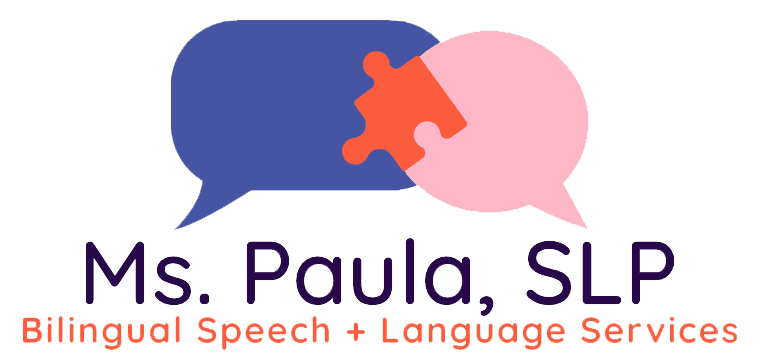Many children suffering from communication difficulties can benefit greatly from speech therapy. Likewise, bilingual children learning English and Spanish at the same time may require speech therapy in one or both of their languages.
For children raised in bilingual English/Spanish households, professional and compassionate Spanish speech therapy—provided by a bilingual Spanish speech pathologist—can provide the critical social skills they need to grow and thrive both as individuals and members of their community.
Spanish Speech Therapy: Why Different Children Learn Differently
Our years of experience as Spanish speech pathologists have shown us that bilingual English/Spanish children often learn different words in each language.
Certain language patterns are commonly found in bilingual English/Spanish children. For example, some children may ‘code switch’ by substituting Spanish words for English words or vice versa. Others may mix up rules of syntax by ordering English words as they would be ordered in a Spanish sentence.
A child raised in a Spanish-speaking household, for example, may learn to refer to foods and kitchen items in Spanish. However, that same child may attend an English-language school and learn to refer to school-related words in English.
Additionally, some children experience communication difficulties in one language; others in both languages at the same time. What’s more, it may not be immediately obvious whether a bilingual child’s communication problems arise from their English skills, Spanish skills, or some combination thereof.
In order to properly address and treat language or communication difficulties, each child’s individual learning needs must be meticulously examined and taken into account. That is what our Spanish speech therapy services are all about.
How a Spanish Speech Pathologist Will Help Your Child Build Social Skills

Good communication skills are the foundation of good social skills. And good social skills are essential for a child’s healthy growth and development.
Many children with language difficulties also struggle with social interaction. Social skills include the ability to:
- Understand social rules and norms
- Use appropriate verbal and body language
- Empathizing with other people’s point of view
- Engaging in conversations with others
Perhaps the most fundamental social skill is the ability to respond to others: to answer questions, engage in conversation, take directions, etc. Hence, the first step to building social skills is to help your child respond to others in both English and Spanish.
A Spanish speech pathologist can communicate with your child in their own language. A Spanish speech pathologist doesn’t have to guess whether your child is understanding and responding appropriately to other people’s communication.
A Spanish speech pathologist can recognize which language delays result from which group of language skills and employ the correct social stories and modeling to improve social skills in English and/or Spanish social contexts.
In short, children develop social skills best when they can communicate with a Spanish speech pathologist who understands them, their language, and their cultural background.
Our Spanish Language Therapy Approach
We begin by conducting a bilingual evaluation to determine the cause of your child’s social communication difficulties. Are the problems arising from their second language? From their first language? Are the problems ‘true’ communication difficulties that arise independently of any particular language? These are all crucial questions to consider.
Once the diagnosis has been completed, our Spanish speech therapy methods work to identify and treat communication issues across all of your child’s language skills.
Our language therapy approach focuses on the following core areas:
- Code Switching: Some bilingual children alternate between their two languages when trying to express certain ideas in social contexts. While this is a normal part of a bilingual child’s development, excessive code switching can result in communication difficulties. Spanish speech therapists can correct these instances of code switching effectively.
- Language Differences: Different languages have different rules of grammar and syntax. To properly provide Spanish language therapy, the therapist must understand the rules of both English and Spanish grammar. They must recognize which language errors pertain to which set of grammar rules.
- Accents and Phonetics: True Spanish speech therapy focuses on the phonetics (i.e. sounds) of the Spanish language. For example, the ‘ñ’ sound does not exist in English. If a child is struggling with this particular phonetic, only Spanish speech therapy can help.
- Language Loss: Some bilingual English/Spanish children may lose skills in their primary language while developing skills in their secondary language. To develop healthy communication skills, a bilingual child must learn to cultivate vocabularies and skills in both English and Spanish. Professional Spanish language therapy ensures that both sets of language skills will be developed and maintained.
We strive to recognize each child’s particular learning needs and provide the professional and compassionate English and Spanish language therapy they need to grow and thrive.

